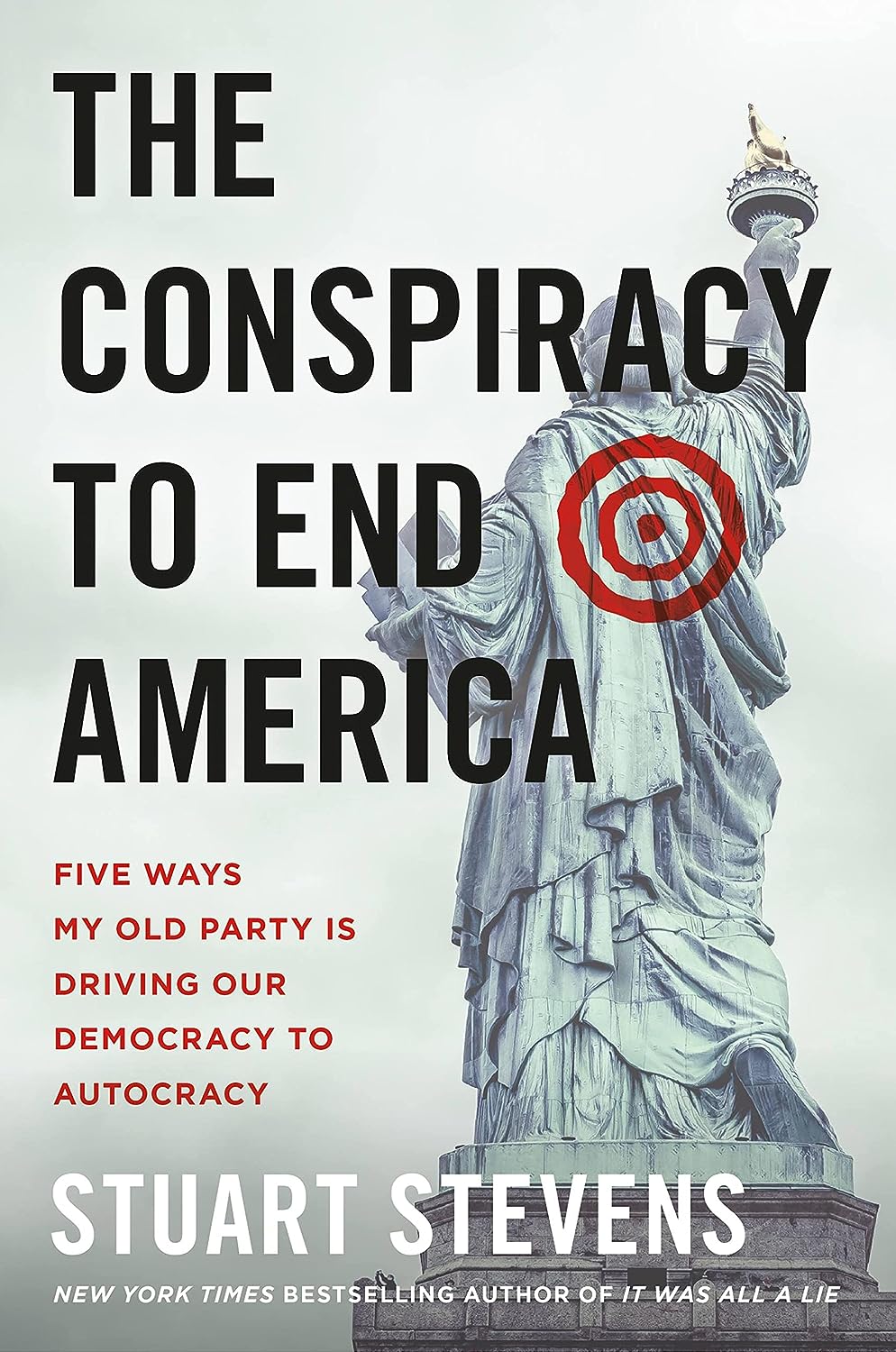A Review of
The Conspiracy to End America: Five Ways My Old Party is Driving Our Democracy to Autocracy
By Stuart Stevens
Twelve Publishers
Hardcover; 240 pages
Political insider warns of coming threat to American democracy
By Jay Wiener
Special to the Mississippi Clarion-Ledger
Stuart Stevens’ “The Conspiracy to End America: Five Ways My Old Party is Driving Our Democracy to Autocracy” will interest Mississippians who have known Stuart since childhood, as I have. Stuart was a Republican political consultant for decades (from 1978, when he ran Jon Hinson’s successful campaign to succeed Thad Cochran in Congress, after Thad replaced Jim Eastland in the Senate) and is currently a pillar of the Lincoln Project.
“The Conspiracy to End America” is combination mea culpa and cri de coeur. It will likely engross Republicans more than Democrats, lodging criticisms that Republicans should anticipate in 2024.
The volume is not unlike Emile Zola’s “J’Accuse…!”, containing accusations answerable during debates and press conferences.
“The Conspiracy to End America” accepts that “[t]here is nothing new about a country with stark societal divides. In the mid-nineteenth century, [Benjamin] Disraeli wrote a novel with the not very subtle title Sybil, or The Two Nations…Disraeli’s ‘two nations’ were divided by class and money, the two elements, together with race, that so often segment societies. But in America, while there is a tremendous inequality, our greatest political divide is one of choice, not circumstances. Two families living next door to each other with similar incomes can believe they live in starkly different nations. One family believes their government is legal, while the other is utterly convinced it’s illegal. The overriding question is a basic one: How long can we survive this?”
Stevens sees social division comparable to the eve of the Civil War, following the 1860 election. Extinguishing the Fairness Doctrine, in 1987, was consequential. Stevens writes, “In 2018, three Harvard professors…made an exhaustive analysis of all aspects of information sources in the presidential campaign beginning in 2015…[drawing] two basic conclusions: ‘First, having a segment of the population that is systematically disengaged from objective journalism and the ability to tell truth from partisan fiction is dangerous to any country. It creates fertile ground for propaganda. Second, it makes actual governance difficult.’”
The pernicious influence of dollars upon reasoned debate interferes: “There’s always been far too much money in American politics. No other Western democracy allows vast sums of money to pollute its electoral system. Repeated efforts to change our system to limit the impact of money have largely failed. But until recently, spending in support of candidates and parties was intended to move our politics in an ideological direction. That’s changed. Today staggering sums of money are being spent not to change the policies of our democracy but to end democracy.”
The fiction of voter fraud corrupts: “I worked in Republican campaigns for thirty years, won and lost many close races. Not once did I see any evidence of voter fraud. The problem we have in America is that we can’t get people to vote even when it’s perfectly legal. Any claims that there are millions of people who are eager to commit a felony by voting has always been ridiculous.”
Organized governmental efforts to suppress voting contaminate: “The Brennan Center’s 2022 report [tracking voting rights legislation in every state] found that 408 restrictive bills were introduced in thirty-nine states, with eight states passing new voter restrictions. An additional 151 election interference bills were introduced, with seven states passing twelve new laws. In 2023, the pattern has escalated and is on track for a record number of bills to be introduced that are aimed at restricting voting or increasing interference.”
Americans presume that fair play and freedom are immutable. The misconception is Stuart’s précis: “Each of us must be our own Paul Revere. Each of us must decide the threat is real and find the battlefield of our choosing. Autocrats win when they master the freedoms of a democratic society to kill democracy. That is the path that we are on today. Where that path leads is up to each of us.”
Jay Wiener is a Jackson attorney.
